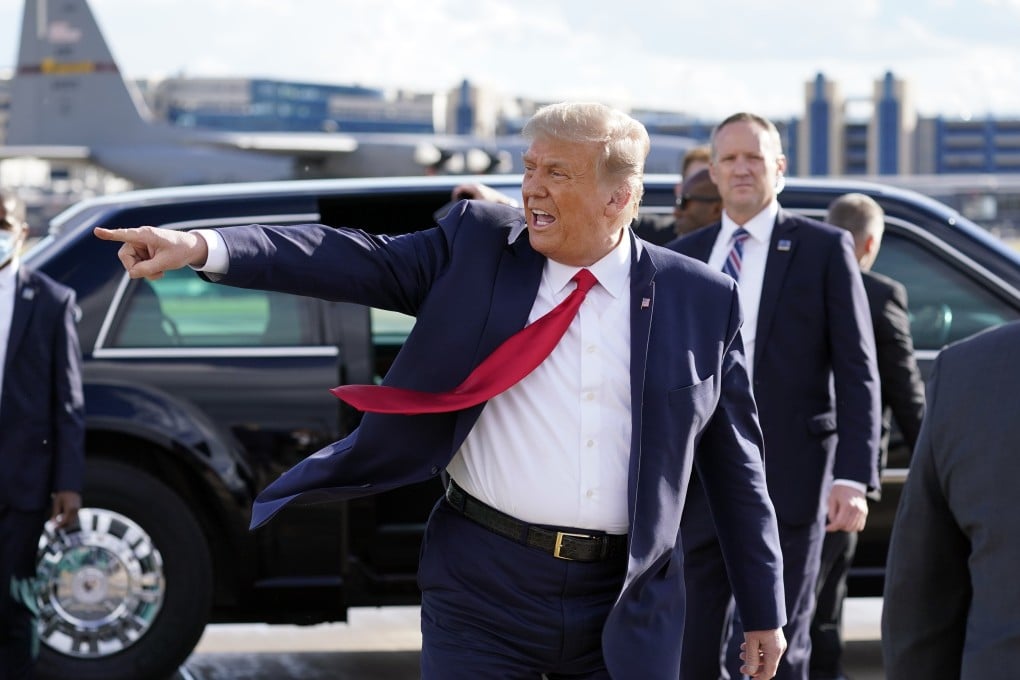Advertisement
Opinion | Thought Trump’s coronavirus diagnosis was a pre-election shocker? Wait until he plays the Taiwan card
- If the US president’s re-election prospects continue to deteriorate, there’s a very real risk he might be pushed towards the seemingly unthinkable
- Recognising Taiwan diplomatically would allow Trump to truly claim his ‘wartime president’ mantle – but at what cost to the region, and the world?
4-MIN READ4-MIN

The world was shocked, if not entirely surprised, by US President Donald Trump’s Covid-19 diagnosis earlier this month. But there could be more “October surprises” yet to come in the lead up to November’s presidential election. Diplomatic recognition of Taiwan, for one – a risky move which would undoubtedly lead to an unintended military clash.
The United States has warmed on its relations with Taiwan in recent months. On August 10, US Health Secretary Alex Azar arrived on the self-ruled island, becoming the highest-level US official to visit in more than four decades.
Then in mid-September, Washington sent another high-ranking official – Under Secretary of State for Economic Growth, Energy, and the Environment Keith Krach – to attend the memorial service for former President Lee Teng-hui.
Advertisement
Just two days before China’s National Day celebration on October 1, the US ambassador to the United Nations publicly expressed support for Taiwan’s inclusion in the UN system, saying that it is “cheating the world” for Taipei not to be involved.

01:55
Taiwan unveils new passport design to avoid confusion with mainland China’s
Taiwan unveils new passport design to avoid confusion with mainland China’s
Moreover, the Trump administration has reportedly proposed seven large arms sales packages to Taiwan, including long-range missiles that would allow Taiwanese jets to hit distant targets on the Chinese mainland.
Advertisement
Advertisement
Select Voice
Select Speed
1.00x

